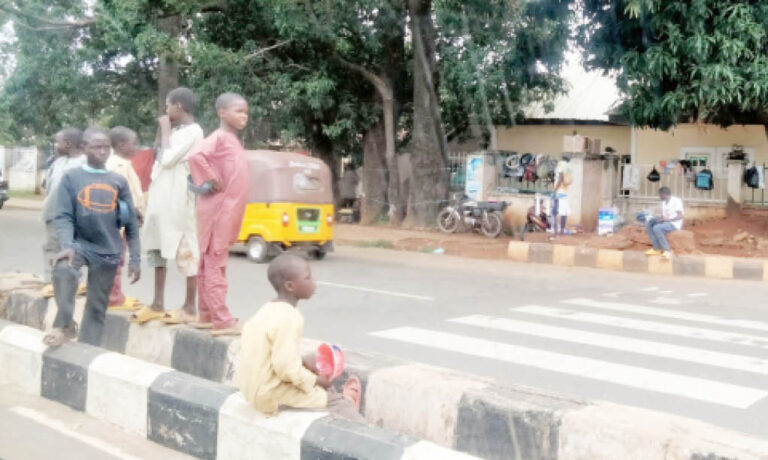
In Abuja, thousands of young girls are missing out on an education, forced into labor and survival-driven choices. These out-of-school girls can be grouped into three categories, each confronting unique hardships yet sharing a common struggle: being deprived of their right to learn.
The first group consists of local girls, born and raised in Abuja, but unable to continue school beyond primary education due to financial constraints. For these girls, economic hardship forces them into work as domestic helpers or street vendors, with their dreams of schooling fading away.
The second group includes migrant and internally displaced girls, many of whom fled their homes in insecure regions, particularly in states affected by insurgency, such as Kaduna, Niger, and the Northeast. These girls came to Abuja with hopes for a better life but soon found themselves in tough circumstances, working in markets, homes, or streets to support themselves and their families.
The third group, perhaps the most vulnerable, are the “house girls” imported into Abuja by agents for child labor. Aged between 13 and 21, they come from neighboring states like Nasarawa, Kogi, Niger, and Plateau, serving affluent families by cooking, cleaning, and caring for children—often the same children they escort to school while their own education remains out of reach. Many of these girls endure exhausting conditions, isolation, and disrespect, sometimes from the children they look after. Sadly, some are also subjected to sexual harassment by other workers or even family members, leading to unwanted pregnancies that further entrap them in poverty.
On Abuja’s streets, numerous out-of-school girls work as street traders in satellite towns, selling groundnuts, sachet water, and food items. They walk between buildings, hoping to earn enough to survive, but in doing so, they face daily risks, from harassment to, in extreme cases, ritual killings. Their dreams of returning to school are overtaken by the pressing need to make a living.
In areas like Deidei, Nyanya, Karo, Karmo, Zuba, and Lugbe, these girls are often found working in restaurants, hotels, small shops, and night clubs known as “Gidan Gala,” where they dance for money. Many endure these difficult conditions, hoping to save enough for exams like WAEC, NECO, or JAMB. Some hold onto the dream of returning to school, while others have long abandoned it under the weight of survival.
The Federal Capital Territory (FCT) government urgently needs to address this growing crisis. Governor Umar Namadi of Jigawa State has shown success with a free education policy for girls from primary to tertiary levels, increasing school enrollment and providing hope and security for girls in Jigawa. A similar initiative could greatly benefit the FCT, where the stakes for these girls are just as high.
Additionally, the FCT Minister must take a firm stance against child labor, particularly the exploitation of young girls. Establishing a task force to conduct house-to-house searches would help ensure that school-aged girls are not being denied their right to an education. Employers and agents who exploit these girls must face consequences, with strict penalties against those involved in the labor trafficking of young girls into Abuja.
Addressing the financial barriers to education is crucial as well. Examination fees for WAEC, NECO, and JAMB are significant hurdles for many out-of-school girls. Subsidizing or eliminating these fees would give them a chance to re-enter the educational system, potentially transforming their futures.
We must remember that educating girls benefits not only individuals but society as a whole. An educated girl is empowered to contribute positively to her family, community, and nation. Educated women are less vulnerable to exploitation, better able to care for their children, and more likely to break the cycle of poverty.
The FCT administration and relevant stakeholders must act without delay. These girls deserve more than a life confined to domestic work or street trading. They deserve education, opportunities to pursue their dreams, and a future filled with promise. The time to invest in their future is now. Let us ensure that no girl is left behind. Free education, protection from exploitation, and opportunities for growth are the keys to a brighter future for out-of-school girls in Abuja.
For more updates, join our WhatsApp channel: https://whatsapp.com/channel/0029VabITrvEAKW7DSkTfP0J